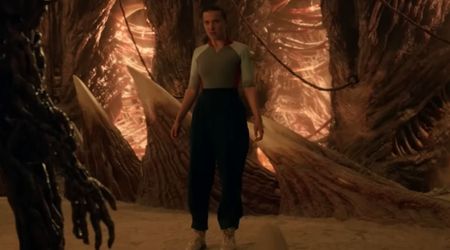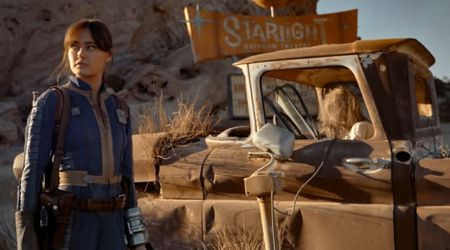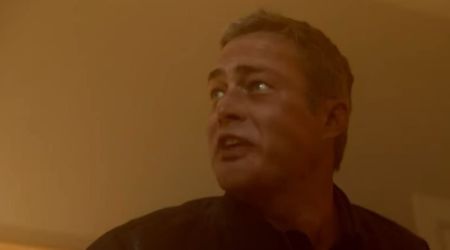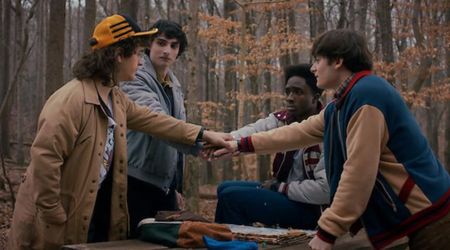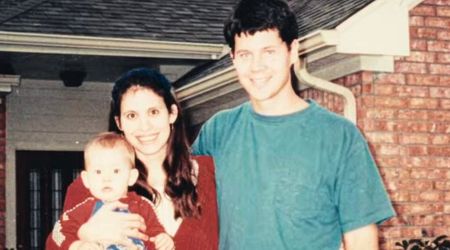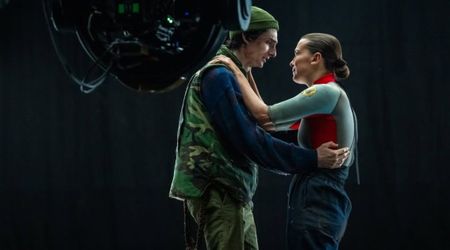David J Peterson, the linguist behind Dothraki and High Valyrian of 'Game of Thrones' credits George RR Martin for the languages

David J Peterson won a competition that the showrunners had organized and came onboard as the linguist of two constructed languages — spoken by Dothraki and the High Valyrian — on the show 'Game of Thrones'. Since season one to quite recently in season 8 episode 5, High Valyrian is used most commonly by Daenerys, followed by the Unsullied. The language of Dothraki was introduced when we first met the character of Khal Drogo (Jason Momoa) in season 1 and the language has been used since to communicate with the Dothraki people.
Two cult phrases from the show, which was conceptualized by author George RR Martin in his books 'The Song of Ice and Fire' are "Valar morghulis" meaning "all men must die" and "Valar dohaeris" meaning all men must serve.
It was these two words that gave David the foundation of the two con-languages that he went on to create. In an exclusive interview with MEA WorldWide (MEAWW), David tells us about how he created the sounds, the language itself and who speaks High Valyrian like a boss on the show.

David started his journey with Dothraki first and provided the showrunners with 1700 Dothraki words even before the show had begun shooting. Speaking about his inspiration behind the con-language, David said, "My inspiration was the material in the books. The whole point the entire time was to create languages that looked and sounded as if they existed before George RR Martin wrote the books and that he had used them for translation when he wrote the books."
When asked what helped him create the phonetics of the language — meaning the sound and enunciation of different words — David revealed that it was the author himself. He said, "I looked at all the words George RR Martin had created, gathered them all together, analyzed their structure, and built the language upon that structure, ensuring that everything new I created fit with the phonological model that George R. R. Martin had established. I didn't create the sound of it: George did."
So did he read the books before he was commissioned to construct the fictional language? David replied that he read the books only after he came on board and explained, "I used the phrases 'Valar morghulis' and 'Valar dohaeris' to build out part of the noun system (it's how I decided on the nominal number), and served as the major inspiration for the entire verbal system. After that, I went to work on noun cases, adjectives, postpositions, etc. on my own."
Over the years, David has been inspired by many con-languages including Doug Ball's Skerre, Sylvia Sotomayor's Kēlen, Mia Soderquist's Ea Luna, and Matt Pearson's Okuna. On the 1.2 million people learning the language on the popular language app Duolingo, he said, "It's certainly the dream of every language creator to be able to have their language on a platform like Duolingo. I hope, one day, others can have their languages on there as well."

David worked on High Valyrian — which is the language that popular prophecies such as Valonquar and Azor Ahai were documented — for season 3 of the show and the language currently consists of close to 2000 words. The Dothraki language now has close to 4000 words. David was most impressed with Jacob Anderson's usage of Valyrian and said that his delivery brings 'joy to my heart. "Everything. He pronounced the language in such a way that it was better than anything I could ever have hoped to have done. After I heard him do it, I tried to imitate him. It's so spot on it brings joy to my heart," he explained.
With the show coming to an end, will the linguist continue pursuing the language and building it further? He said, "All of the languages I create are very dear to me, and I keep working on them whether or not the properties they're attached to still exist. 'Game of Thrones' languages are no different in this regard. I'll keep working on them until the day I die."
Speaking of the show coming to a conclusion, David added, "It's the show that gave me my start, and the only one I've worked on consistently for the last 10 years. It's interesting that it won't be there as my anchor anymore. We'll see if I'm able to keep working on languages moving forward. Even if not, I've had an amazing 10 years. I have no complaints."
If you have an entertainment scoop or a story for us, please reach out to us on (323) 421-7515

